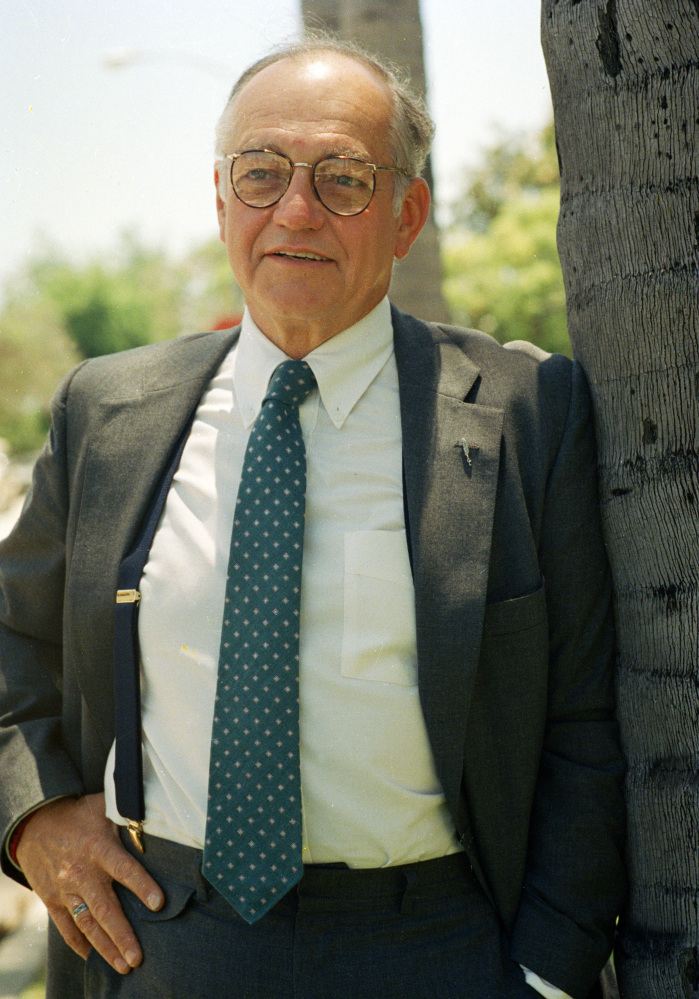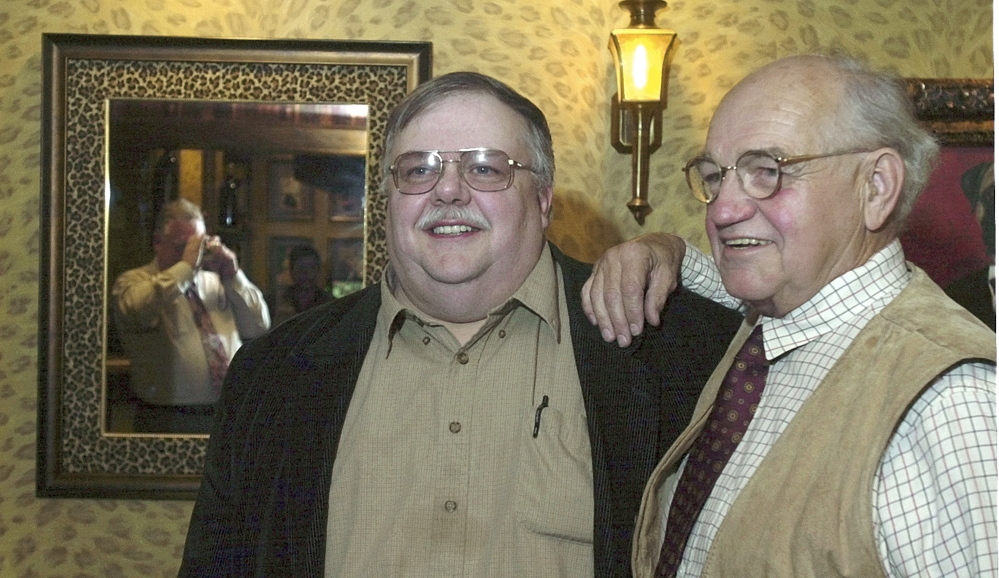LOS ANGELES — Richard Dysart, a veteran stage and screen actor who grew up in Augusta, Maine, and who played senior partner Leland McKenzie in the long-running TV courtroom drama “L.A. Law,” has died after a long illness. He was 86.
Dysart died Sunday at his home in Santa Monica, Calif., according to daughter-in-law Jeannine Jacobi.
From seventh grade through high school, Dysart lived at 12 Johnson St. in Augusta across from the former Lincoln Elementary School. His father was a podiatrist.
Dysart was a 1947 graduate of Cony High School, acting in Chizzle Wizzle each year he attended. He reprised some of those acts when he returned to the capital city in 2003 to help Team Cony raise $1.5 million to fund a larger auditorium, gym and classrooms in the new Cony High School building.
In an interview at the time with a Kennebec Journal reporter, Dysart said the values he learned while growing up in the state and at Cony helped him in life and as an actor.
In a 1992 Kennebec Journal article, he urged the removal of the Edwards Dam as he fished on the river in downtown Augusta and recalled skating on the river in winter and dodging pulpwood while swimming in the Kennebec in the summer. The dam was later removed.
He also offered the commencement address that year to the graduates of the University of Maine at Augusta.
Dysart and his wife, Kathryn Jacobi, were in Augusta for his 60th high school reunion in 2007.
Dysart created the Broadway role of the Coach in “That Championship Season,” for which he won a Drama Desk Award in 1972, and his many film appearances included Hal Ashby’s “Being There,” Clint Eastwood’s “Pale Rider” and John Carpenter’s “The Thing.”
But his most memorable role was likely that of head man in the firm of McKenzie, Brackman, Chaney and Kuzak in NBC’s 1986-1994 series “L.A. Law.”
It was produced by Steven Bochco, who, having scored a hit with the police series “Hill Street Blues,” was casting another multi-character series that would portray the life in a toney Los Angeles law office.
“I was trying to make it by doing films and TV movies,” Dysart said in an Associated Press interview in 1988. Then he heard about the prospective “L.A. Law” project and called his agent.
“After I read the script,” he recalled, “I called him and said I wanted to talk to Steven Bochco. My agent said, ‘That’s funny, he wants to talk to you.”‘
The role of Leland McKenzie was largely an official one, patiently advising his lawyers about their cases and their romances. But he had one experience during the 1988 season that was out of character: a romance with a beautiful law student 30 years McKenzie’s junior. Dysart was delighted to depict this May-December fling.
“L.A. Law,” for which Dysart won an Emmy, was the culmination of his long career.
But he hadn’t thought much about acting when he was growing up in Maine. He worked at a local radio station, but only when he enrolled at Emerson College in Boston did he consider acting as a profession. After earning his master’s degree, he headed to Broadway.
In the 1960s, he became interested in repertory and became one of the founding members of the American Conservatory Theater in San Francisco. George C. Scott appeared with the company, and he and Dysart became good friends. Dysart later joined Scott in a New York revival of “The Little Foxes.”
In 1968, Dysart made his film debut with Scott and Julie Christie in Richard Lester’s “Petulia.” He also appeared with Scott in “Hospital,” “Hindenberg,” “The Last Days of Gen. Patton” and on Scott’s TV series “East Side/West Side.”
Dysart portrayed a variety of prominent figures. He was Dwight D. Eisenhower in “The Last Days of Gen. Patton” and in a BBC film “Churchill and the Generals.” He played Harry Truman in the CBS movie “Day One” and in the ABC miniseries “War and Remembrance.” He was J. Edgar Hoover in “Panther” and Henry L. Stimson, secretary of war in 1940-1945, in “Truman.”
In 1987, Dysart married artist Kathryn Jacobi, who survives him.
Material from the Associated Press and Kennebec Journal archives was used in this story.
Send questions/comments to the editors.




Comments are no longer available on this story